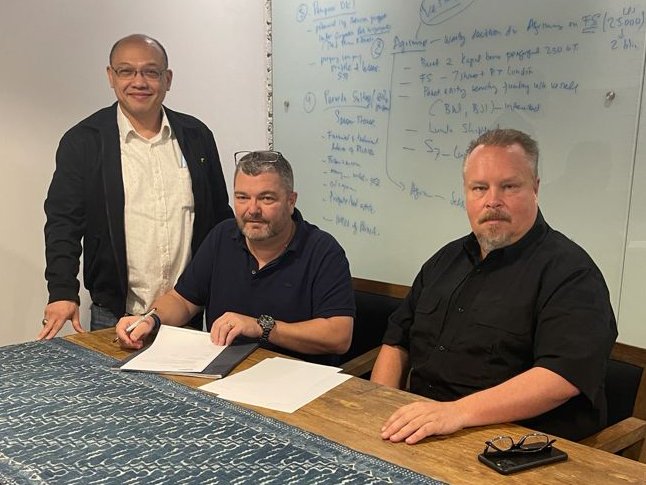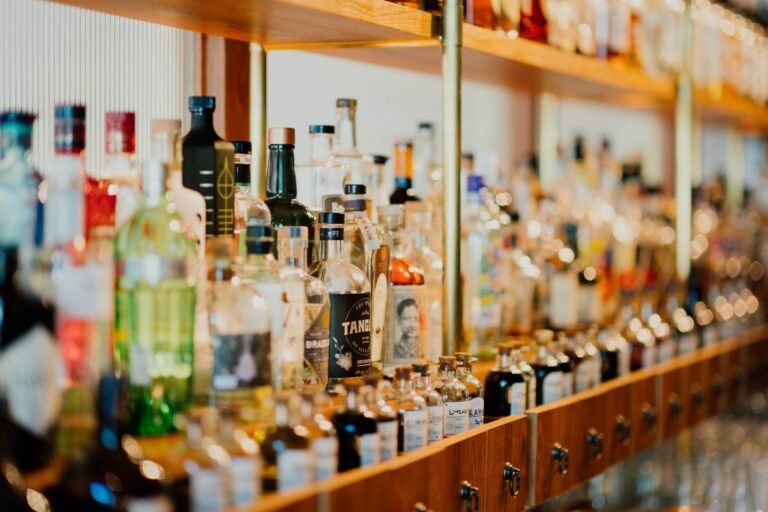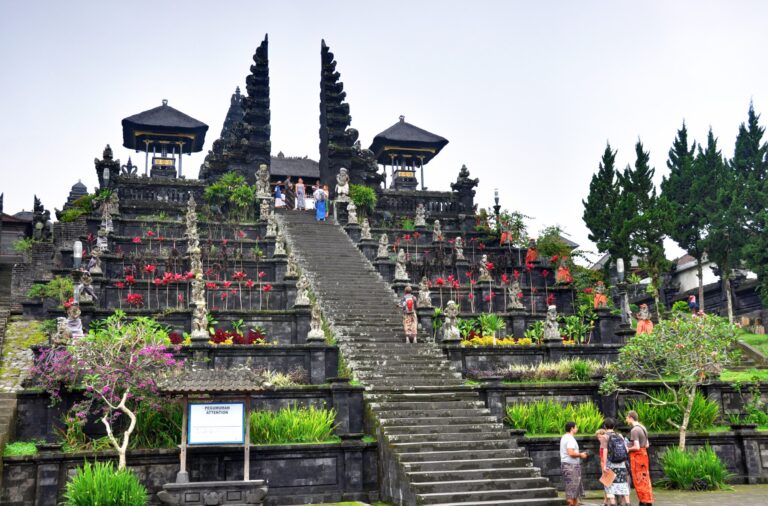This has been an historic week for Indonesia with the country going to the polls on April 17 and while the official results will not be announced until May 22 by KPU (Komisi Pemilihan Umum – the state institution that holds and organizes the elections), all quick counts, by the Center for Strategic and International Studies and Cyrus Network show Jokowi winning.
The quick count has less than 1-point margin of error and the world is already congratulating Jokowi on winning his second term.
The following anaylsis has been based on a Bloomberg assessment of the current and future prospects for Indonesia.
According to a recent report in Bloomberg, “Seven top private polling agencies had … Jokowi, ahead of the former general by at least 7-percentage points with about 95-percent of the vote counted. While election authorities must confirm any final outcome over the next few weeks, results from private companies have proven accurate in past elections.”
What impact will this have on Indonesia’s economy and in particular tourism and real estate?
What is clear from day one is that the dark cloud of political uncertainty is lifting for good.
The economy has grown more than 5-percent this year, inflation is under control and the currency has stabilized after last year’s sell-off.
So where do we go from here?
Well, for a start, Jokowi has pledged to continue to further increase and speed up infrastructure investments and developments.
The country is already well into a USD 350-billion infrastructure drive. The main focus being on urban areas as well as digital projects and initiatives. Indonesia already ranks #1 for eCommerce transactions in Southeast Asia according to the latest Google and Temasek 2018 e-Conomy SEA Report.
There is likely to be more effort on reducing poverty with direct financial support/aid towards poor and remote areas by keeping essential food items prices low.
Tax collections will continue to be improved. The bottlenecks of transportation and providing efficient supplies of electricity are being addressed. And last but not least for the next term there is likely to be a strong focus on education and training.
What does all this mean in economic terms?
The Indonesian government is forecasting growth of 5.3-percent this year and as much as 5.5-percent in 2020. But there is the risk slower global growth and the still unresolved trade tensions between the U.S. and China could impact these projections.
Indonesia is reliant on domestic sources of growth, mainly consumer spending. Controlled inflation and a stable currency will also help support household sentiment and expenditure, something that has already been supported by Jokowi’s social welfare programmes and fuel subsidies.
Another key area will be on narrowing the current-account deficit, cited as a key risk for the Rupiah’s fluctuation. The government imposed import curbs to reduce overseas demand, as well as to promote the use of biofuels to cut down on crude imports.
Just last week Indonesia also officially announced that it sits on significant oil and gas reserves and is looking at attracting investments to explore this further.
In fiscal terms what’s likely to happen?
Some would suggest Jokowi retain his finance minister, Sri Mulyani Indrawati. She has been successful in narrowing the budget gap to 1.76-percent of GDP last year, well below the 3-percent ceiling set, and improve tax compliance and collections.
However, Indonesia’s tax-to-GDP ratio remains low at about 12-percent and needs to increase dramatically. Jokowi has pledged to borrow only to finance infrastructure projects, and to reduce the reliance on foreign ownership of government bonds.
The jump in oil prices this year may also have an impact if Jokowi keeps fuel subsidies in place, as rising oil prices will put additional strain on the national budget.
Will Indonesia change its monetary policy?
Inflation has been slowed and reduced. Last month it was 2.5-percent, the lowest in 10-years. Bank of Indonesia (BI) has kept its key interest rate unchanged at 6-percent this year after six hikes in 2018. So its expected that inflation will stay inside the 2.5-percent to 4.5-percent target for 2019.
Low food prices and subsidised fuel have helped to keep inflation low, however the U.S. Federal Reserve’s recent shift away from rate hikes has fuelled a rebound in the currency, creating an opportunity for BI to extend its policy pause.
There is a BI policy decision scheduled for next week and despite growing calls for rate cuts, Bank Indonesia Governor Perry Warjiyo has already signalled a cautious approach given global risks, and his term doesn’t expire until 2023.
What could this mean for the Rupiah?
A second term for Jokowi removes the policy uncertainty that has kept many investors on hold in the run-up to this week’s election.
There is a chance the Rupiah may rally against the dollar for the next week or so with offshore forward contracts already gaining as early results pointed to Jokowi’s likely re-election.
BI has been very proactive in its efforts to stabilize the currency after last year’s sell-off and has more than USD 120-billion in foreign exchange reserves available to defend the Rupiah if need be.
It also provides liquidity in times of market needs and stress. To boost further confidence in the currency over time, the new government will need to bring down imports in order to deal with the current account deficit.
What’s next in general?
The official election results will formally be announced on May 22 and all signs point to Jokowi being sworn in for a second term in October.
Prabowo has stated that he will legally challenge his defeat, and some investors may remain cautious until the official results are known, however most seem confident Jokowi will run for another five years and all will be well.
Prior to Jokowi beginning his second term in October however, it’s business as usual for government programmes.
Jokowi will likely make some changes in his cabinet, with investors watching carefully who will stay and who will go. A key player to watch for is Minister of Finance Sri Mulyani, who may be appointed to another post.
As a former manager of the World Bank she is very well respected in the international community and financial institutions across the globe.
The key appointments to follow are for the ministers of the economy, energy, trade and mineral resources. The head of the investment board (BKPM) a cabinet position in Indonesia, is also important to further enhance foreign and domestic trust in the country’s economy.
What will be the impact of Trade Agreements?
Over the last six to eight months Indonesia has signed several large trade agreements with ASEAN, Australia and with the four countries who are part of EFTA.
These agreements and their ratifications are being fast tracked as an alternative market against the back drop of the China-US rift.
Those involved are seen as taking positive steps to further develop trade, and even some EU based countries are exploring setting up or using investment companies to trade through Switzerland as part of EFTA as EU trade agreements are still seen as being negotiated and needing more time. There is also uncertainty around the recent palm oil ban, which will impact Indonesia’s massive palm oil industry.
What will be the impact on tourism?
Indonesia has for some time stated its priority is to make tourism its number one foreign exchange earner by 2020.
Jokowi’s administration launched its 10 New Balis initiative in 2016 (which is now 12). The World Bank, which held is Annual Meeting with the IMF in Bali last October, is heavily supporting this and is giving priority to four of these destinations and underwriting any investments into Mandalika (Lombok), Flores, Borobudur and Lake Toba in North Sumatra.
Indonesia’s Ministr of Tourism, Arief Yahya, has also stated that tourism and real estate need to work hand in hand to ensure the best possible results.
It is also worth noting the World Real Estate Federation Congress (FIABCI) held its first international conference outside of Europe late last year, which was also in Bali, as a commitment towards this aim.
How does this impact real estate in Bali and Indonesia?
During Jokowi’s current term, 16 investment incentive packages have been released. Last year saw the launch of the OSS (Online Single Submission) system designed to streamline and regulate the nation’s business registration procedures, and even though it has experienced some growing pains it’s becoming a lot easier to invest in Indonesia.
In 2015 a change on the Hak Pakai (foreign residential title) was done, and recently news from the Agrarian office has indicated that they may allow HGB (right to build) title for foreigners in their own name.
This will hopefully gain momentum during Jokowi’s second term.
The dawn of a Golden Age?
It is worth noting that this week’s elections were not just for the Presidency but also for new representatives for provincial and regional governments. This is seen as a mayor step towards a final consolidation of national plans and to prevent misunderstandings and differences in regulations between central, provincial and regional branches.
In a release from the Sekretariat Kabinet Repubik Indonesia, Jokowi announced Cabinet calculations showed that “by 2045, by which point Indonesia will have reached its 100th year of independence, Indonesia will have a population of 309 million people, economic growth of 5 to 6-percent and Gross Domestic Product (GDP) of USD 9.1-trillion, while Indonesia’s income per capita is expected to reach USD 29,000.”
Our view is that Jokowi is driving this and the country is, in a positive way, “at point of no return.” We are indeed witnessing the start of a Golden Age and there is no better time to invest.
Sources: Bloomberg, Gapura Bali, Nikkei Asian Review, Indonesia Investments, Reuters, CSIS, Cyrus Network, China Briefiing, Respol, BKPM, The Insider Stories, Department of Foeriegn Affairs and Trade, EFTA, Forbes, Invest Islands, SEKTAB, Presiden Joko Widodo’s Facebook page

















